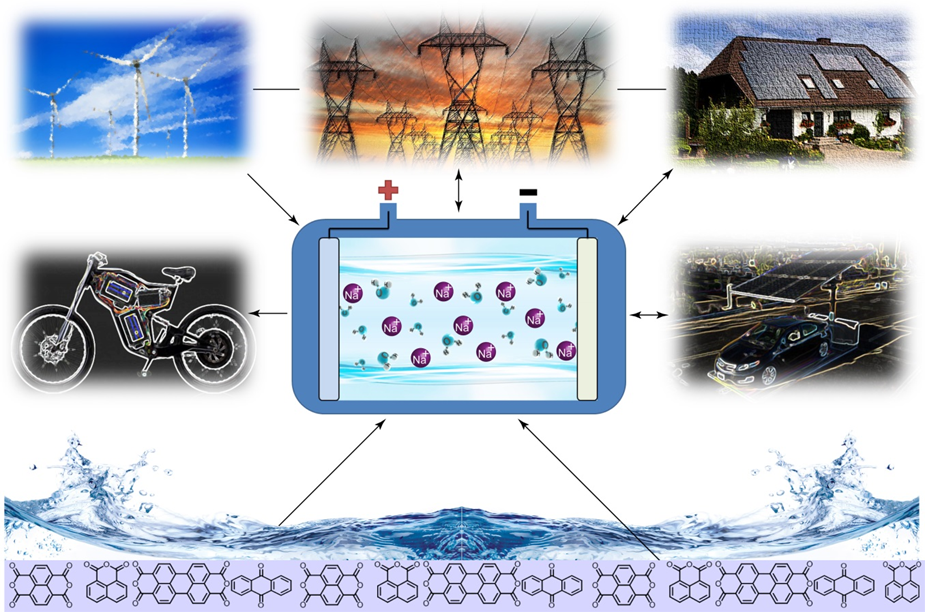Cheap Na and Zn-aqueous batteries for static energy storage
More and more energy storage is required as the energy transition progresses, since green electricity is highly intermittent. This storage needs to be cheap, efficient and easily producible on large scale. Aqueous batteries seem to be very promising for this due to the combination of low material and assembly costs, long cycle life, non-toxicity and non-flammability of its electrolyte. However, the realization of their full potential requires development of novel electrode materials that can deal with the restrictions of an aqueous environment.
The aqueous battery research of the SEE group is focused on finding new, cheap and well performing electrode materials for the Sodium-ion and Zinc-ion based aqueous batteries.
Organic materials are investigated for being used as anode materials for the Na-aqueous batteries. They are sustainable, easily scalable and tunable to the appropriate working potential. However, many organic materials dissolve during battery operation because their (local) polarity changes, which makes them soluble in the aqueous electrolyte. Polymerization, impregnation and coating of the organic materials are some of the methods which are being investigated to prevent the dissolution of the electrode materials.
Inorganic materials are researched as cathode materials in combination with Zinc metal anodes in the Zn-aqueous batteries. Different synthesis conditions of the active materials as well as the effect of different electrolytes on the electrochemical performances are being investigated.
Multiple different test cells are being used for ex-situ, in-situ and in operando measurements (XRD, NDP and Solid State NMR) like coin cells, pouch cells and in-house designed cells.
